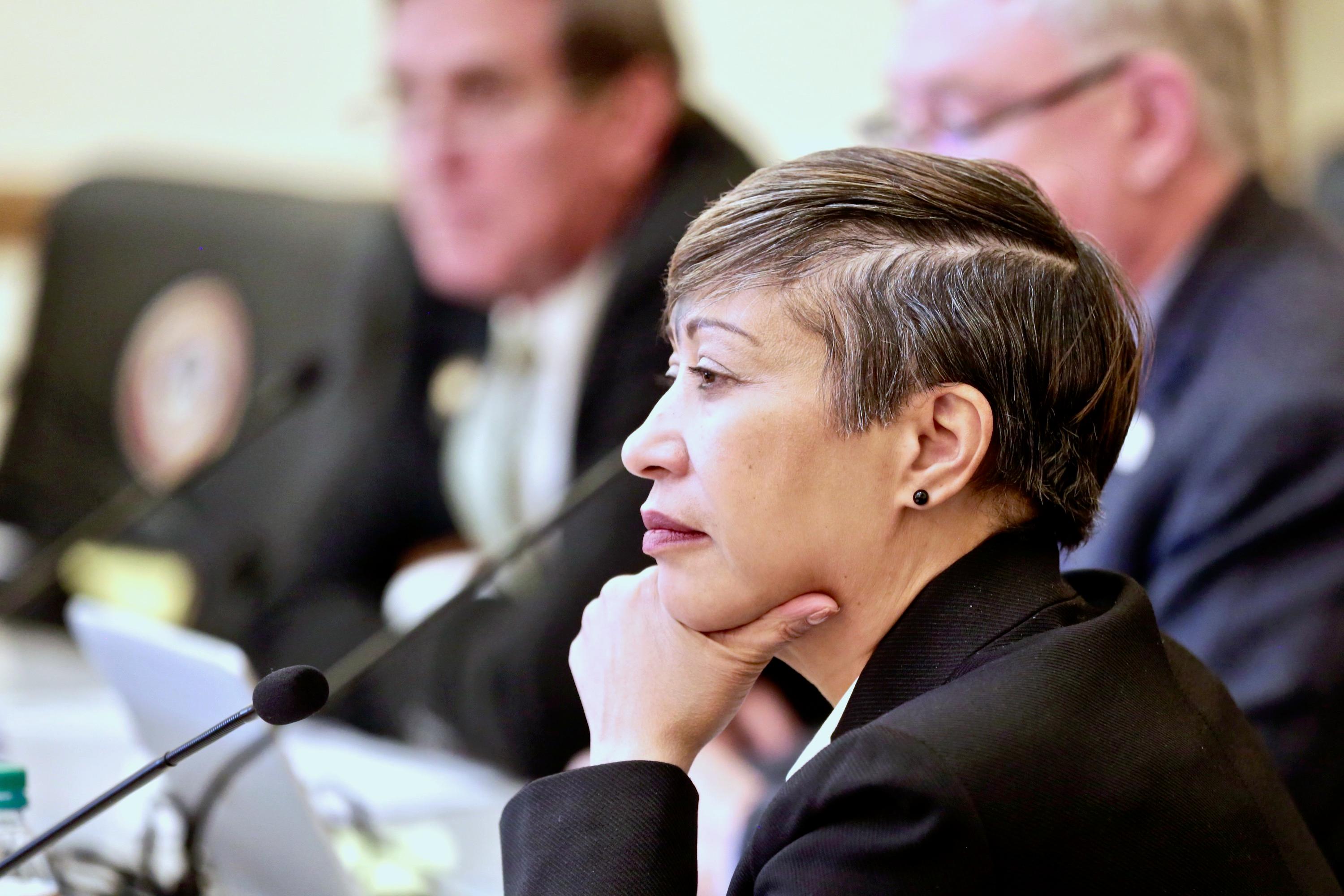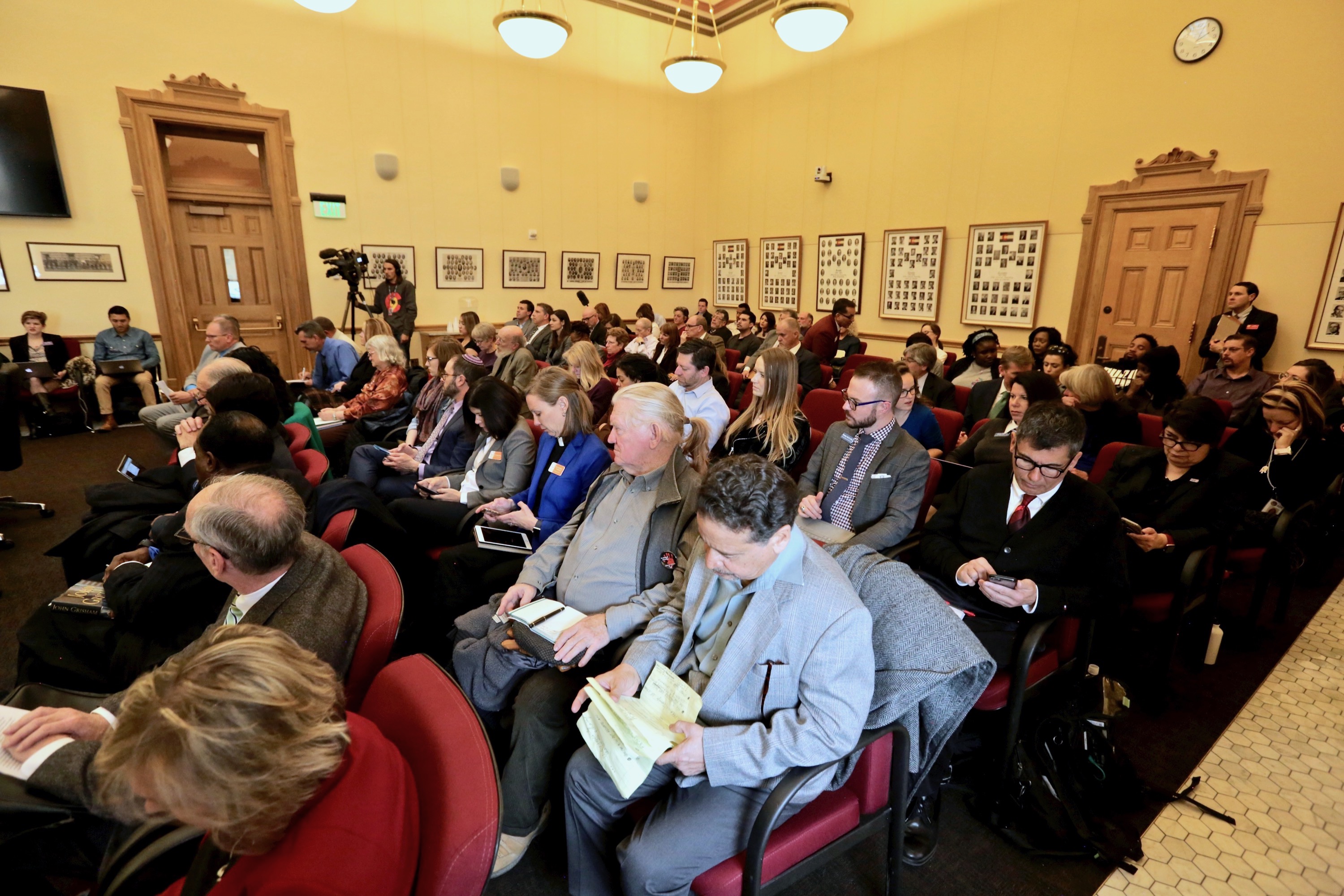

The death penalty, and whether to repeal it, is likely to be one of the weightiest topics Colorado’s legislature will debate this session. It’s a matter of life and death, justice and redemption — with passionate feelings on all sides.
And for some at the Capitol, the issue is deeply personal.
Advocates believe this is the best chance they’ve had in years to abolish capital punishment. The repeal bill, SB19-182, passed the Senate Judiciary Committee Wednesday night on a 3-2 party line vote. However, even with Democrats in charge of the legislature and governor’s office, it won’t be easy to get to the finish line.

“It's not a theory. It's not a big picture thing. We actually lived it. We actually had to make the hard choices,” said Democratic Rep. Tom Sullivan of Centennial.
His son Alex was one of the 12 people murdered in the 2012 Aurora Theater Shooting. Sullivan supported prosecutors’ push for the death penalty for James Holmes. Even though a jury ultimately decided against it, Sullivan said he’s glad it was an option. He doesn’t want to tell any other family in a similar situation that they can’t seek what they feel is justice.
“Even after the fact there was no remorse from what he had done,” Sullivan said of Holmes. “There’s every indication if he were to have another chance at this, he would try to do it again. We have a mechanism if those people don’t want to be a part of our society, we should have the ability to take those people out of our society.”
Sullivan’s position goes against the majority of his party. Democrats generally support a death penalty repeal, but he’s not the only one to argue against the change. Of the three men on Colorado’s death row, two are there for the murder of Democratic Sen. Rhonda Fields’ son Javad Marshall-Fields and his fiance Vivian Wolfe. They were killed days before Javad was set to testify in a murder trial.
Both Sullivan and Fields first got involved in politics because of their respective family tragedies.

“It’s just a part of my experience,” Fields said. “It’s a part of who I am as a lawmaker. It’s a constant pain I live with every day. It’s something that you just you don’t get over you just live through.”
Senate Bill 19-182 would only apply to future cases, but Fields believes if it passes her son’s killers will never be executed.
“Because if it's not good for future crimes, then it probably is not relevant for current,” she said. “What kind of justice is that for Jovad and Vivian who were doing their civic responsibility by cooperating with the police? Their whole future was ahead of them and they were ambushed and murdered.”

Gov. Jared Polis has already said he would sign the repeal should it reach his desk. He also told Colorado Public Radio he would take it as a strong indication that those on death row should have their sentences commuted to life in prison. Democratic bill sponsor Sen. Angela Williams said the governor’s support is critical.
She’s also aware of her colleagues’ personal reasons for supporting the death penalty and remains unswayed by their arguments.
“I'm approaching this with all due respect in the situation that [Fields] and Tom Sullivan have been in.”
Williams believes the death penalty is too costly, and that it is not applied fairly. As a black woman, she worries for her son and other people of color.
“The three men who are African-American that sit on death row now — they are all from Arapahoe County. They all went to the same high school... Where you live, and the color of your skin, and how much money you have depends whether or not you get the death penalty,” Williams said.
In Colorado, it’s been rare for prosecutors to seek the death penalty, and even rarer for juries to impose it. The state has only executed one person since the U.S. Supreme Court reinstated capital punishment in 1976: Gary Lee Davis in 1997.
For Williams, and many others supporters of repeal, religion is a motivator. The Catholic Church plays a big role in advocating for the effort this year. The bill’s first hearing, was deliberately timed to fall on Ash Wednesday, the beginning of Lent. That connection to personal faith may bring a few GOP votes to what is a mostly Democratic effort.
“We don't live in the Stone Age where the only way to stop someone from continuing to kill other people is to take their life,” said Sen. Kevin Priola, a Catholic Republican and one of the co-sponsors. “And we need to have dignity and grace and love for one another and that they have the opportunity in their life to repent for whatever they've done.”
Democrats have a slim majority in the Senate. With Fields and other Democrats potentially against the bill, they could need some GOP votes to pass the repeal.

If it makes it to the House, the bill will be on firmer footing; Democrats have a wider edge in that chamber. Yet, some of those members grapple with what to do, too. Democratic Rep. Dominique Jackson covered crime extensively as a television reporter for 20 years. She has a different perspective than almost any other lawmaker.
“I have seen the crimes, I have been in the courtrooms, I have spent time with the families on both sides, be it the victim or the perpetrator,” she said. “And I've witnessed an individual dying by lethal injection.”
Jackson witnessed the execution of Jaturun Siripongs in 1999 in California. She didn’t find the experience traumatic because she was just there to take down the facts. But all these years later, she can still vividly recall it.
“I remember the smells. I remember the footsteps walking down the hallways in San Quentin. I remember the eerie green glow of the lights in the hallway, and I remember that man's chest rising and falling.”
As she tries to make up her mind to eliminate the death penalty, Jackson said she’ll put on her reporter hat and make sure to listen to all sides in the ongoing debate, including the different ways it’s shaped the lives of her colleagues.









